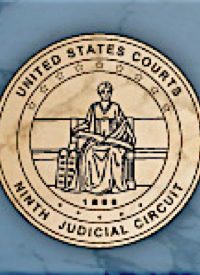
In a decision a plaintiffs’ lawyer called an effort “to put lipstick on a pig,” a panel of the in San Francisco upheld Thursday a congressional grant of immunity from law suits to telecommunications companies that had surrendered records of their customers phone calls and electronic communications to warrantless government searches. The three-judge panel unanimously affirmed a lower court ruling holding the congressional action constitutional. The case consolidated 33 lawsuits filed against various telecom companies, including AT&T, Sprint Nextel, Verizon Communications Inc. and BellSouth Corp, on behalf of the companies’ customers.
The legal battles grew out of presidential order signed by George W. Bush in 2002 authorizing the National Security Agency to conduct electronic surveillance on Americans and others inside the United States in search of evidence of terrorist activity. The presidential directive authorized searches without either the domestic court warrants required for criminal investigations or those issued by the Foreign Intelligence Surveillance Court for investigation of activities of foreign persons or organizations, as required by the Foreign Intelligence Surveillance Act of 1978. The controversies, both legal and political, arose after the New York Times published a page-one story on the secret program (“Bush Lets U.S. Spy on Callers Without Courts” in December 2005. The NSA, the Times reported, had been “monitoring the international telephone calls and international e-mail messages of hundreds, perhaps thousands, of people inside the United States without warrants over the past three years in an effort to track possible ‘dirty numbers’” linked to al Qaeda operatives.
The Bush administration and the Justice Department claimed the authorization was legal under the inherent powers of the President in his role as commander in chief. They also claimed Congress had implicitly confirmed that power by its passage of the Authorization of the Use of Military Force http://news.findlaw.com/wsj/docs/terrorism/sjres23.enr.html after the terrorist attacks of September 11, 2001. The electronic surveillance was necessary for the government to discover who the terrorists are, where they are and what they are plotting in order to take the action authorized in the AUMF, they argued. The administration further claimed that information gained from the surveillance had been helpful in thwarting terrorist plots. The Justice Department, under both Presidents Bush and Obama administrations, has argued that allowing the lawsuits to go forward would jeopardize national security by exposing classified information.
The plaintiffs alleged the the telecom companies violated the privacy rights of their customers by turning over records of phone calls and e-mails to the NSA without the requirement of a court-issued warrant. Congress later amended the FISA statute to allow the warrantless surveillance for a limited time immediately following a terrorist attack or in anticipation of an imminent attack. In order to head off the lawsuits already underway, Congress also granted immunity from liability to those companies that had already cooperated with the NSA by turning over the records of their customers’ communications. In finding that grant of immunity constitutional, the appeals court noted comments made by the Senate Select Committee on Intelligence regarding the legal immunity’s role in helping the government gather intelligence.
“It emphasized that electronic intelligence gathering depends in great part on cooperation from private companies … and that if litigation were allowed to proceed against persons allegedly assisting in such activities, ‘the private sector might be unwilling to cooperate with lawful government requests in the future,'” Judge M. Margaret McKeown wrote in the panel’s unanimous opinion.
The lawsuits were based on the claim that the companies’ actions were not lawful at the time, however, and that the congressional grant of retroactive immunity violates the Constitution’s ban (Article I, Section 9) on the making of “ex post facto” (from after the fact) law. The warrantless searches of possibly millions of private communications also raise issues concerning privacy rights incorporated in the Constitution’s Fourth Amendment:
The right of people to be secure in their persons, houses, papers, and effects, against unreasonable searches and seizures, shall not be violated, and no Warrants shall issue, but upon probable cause, supported by Oath or affirmation, and particularly describing the place to be searched, and the persons or things to be seized.
Lawyers from the San Francisco-based Electronic Frontier Foundation and the American Civil Liberties Union brought the case to the appeals court. “I’m very disappointed. I think the court reaches to try to put lipstick on a pig here,” said EFF legal director Cindy Cohn, who argued the case before the panel. “I think what Congress did was an abdication of its duty to protect people from illegal surveillance.” Cohn praised the panel, however, for a separate decision, in Jewel v. NSA, that sends a similar complaint back to District Court for further litigation.
“Since the dragnet spying program first came to light, we have been fighting for the chance to have a court determine whether it is legal,” said Cindy Cohn. “Today, the Ninth Circuit has given us that chance, and we look forward to proving the program is an unconstitutional and illegal violation of the rights of millions of ordinary Americans.”



